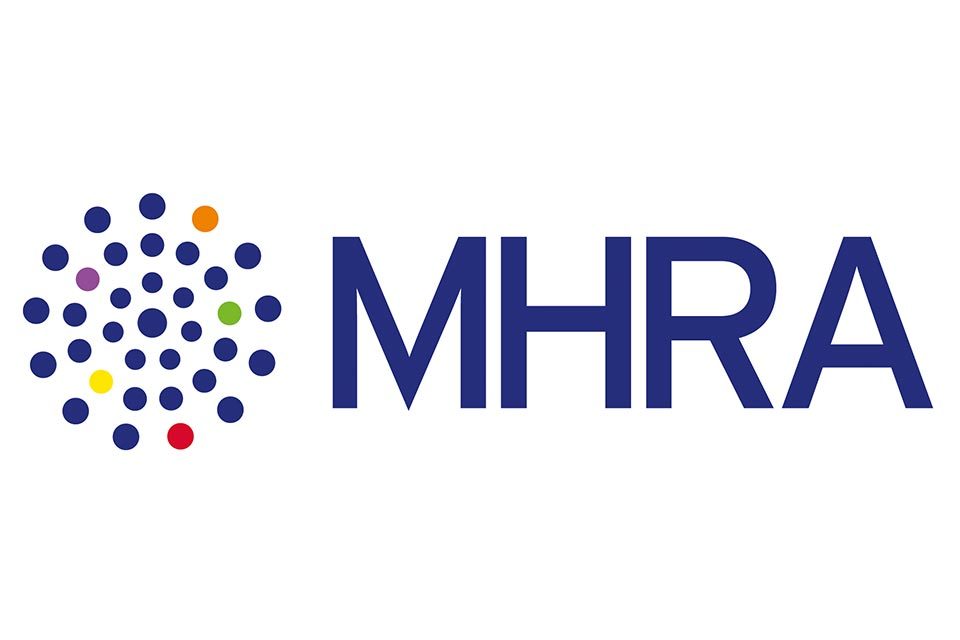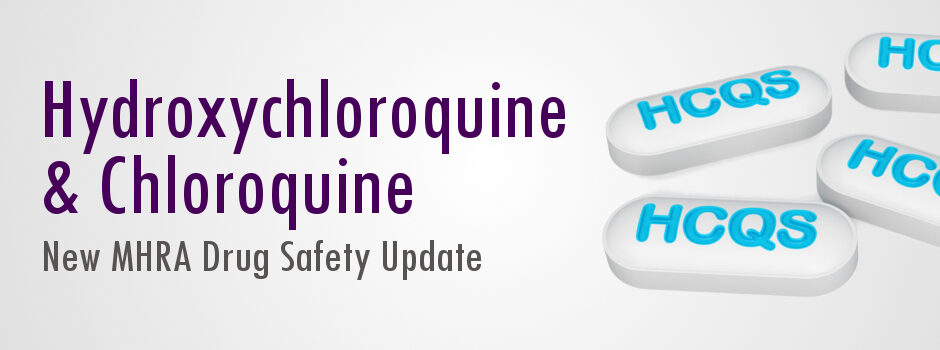
Drug Safety Update – Hydroxychloroquine & Chloroquine
 March 08th, 2022
March 08th, 2022 Nakita Cambow
Nakita Cambow Latest News
Latest News 0 Comments
0 Comments
 On Tuesday 15th February the Medicines and Healthcare products Regulatory Agency (MHRA) published a Drug Safety Update article on hydroxychloroquine and chloroquine.
On Tuesday 15th February the Medicines and Healthcare products Regulatory Agency (MHRA) published a Drug Safety Update article on hydroxychloroquine and chloroquine.
Hydroxychloroquine and chloroquine are antimalarial medicines which are used in the treatment of lupus and some other connective tissue diseases. These disease-modifying anti-rheumatic drugs (DMARDs) regulates the activity of the immune system. They can modify the underlying disease process in lupus, rather than simply treating the symptoms. You can learn more about hydroxychloroquine in a helpful guide produced by Versus Arthritis, HERE.
The MHRA and independent medical experts reviewed the available safety data for hydroxychloroquine and chloroquine when these medicines are used on their own or in combination with some antibiotics (known as macrolides). The review focused on the cardiovascular safety of these medicine combinations.
You can read the full report HERE.
What did the MHRA Drug Safety Review find?
Increased risk of cardiovascular side-effects when combined with macrolide antibiotics
The review found that the macrolide antibiotics (azithromycin, clarithromycin or erythromycin) taken by mouth or given as an injection at the same time as hydroxychloroquine or chloroquine have been associated with an increased risk of side-effects that affect the heart. Healthcare professionals have been issued guidance to carefully consider the benefits and risks before prescribing systemic azithromycin or other systemic macrolide antibiotics (erythromycin or clarithromycin) to patients being treated with hydroxychloroquine or chloroquine.
Patients who are taking hydroxychloroquine or chloroquine are reminded that they should seek urgent medical help if they have any signs of problems with their heart (for example, palpitations, fainting, chest pain, or unexplained breathlessness).
Potential for psychiatric reactions
Some patients have reported mental health symptoms when they started treatment with hydroxychloroquine or chloroquine. Healthcare professionals have been issued guidance to be vigilant for psychiatric reactions associated with hydroxychloroquine or chloroquine, especially in the first month of treatment; events have been reported in patients with no prior history of psychiatric disorders.
If you are taking hydroxychloroquine or chloroquine it is recommended that you speak to your doctor as soon as possible if you, or your family members or caregivers, notice any new or worsening mental health symptoms such as irrational thoughts, anxiety, hallucinations, and feeling confused or depressed, including thoughts of self-harm or suicide.
Reporting suspected side-effects and adverse reactions
 You should always read the Patient Information Leaflet that comes with your medicine (hydroxychloroquine or chloroquine) and keep it handy in case you need to read it again. Talk to your healthcare professionals if you have any concerns.
You should always read the Patient Information Leaflet that comes with your medicine (hydroxychloroquine or chloroquine) and keep it handy in case you need to read it again. Talk to your healthcare professionals if you have any concerns.
Please continue to report suspected adverse drug reactions to the Yellow Card scheme. Healthcare professionals, patients, and caregivers are asked to submit reports using the Yellow Card scheme electronically using:
- the Yellow Card website
- the Yellow Card app; download from the Apple App Store or Google Play Store
- some clinical IT systems for healthcare professionals (EMIS, SystmOne, Vision, MiDatabank, and Ulysses)
When reporting please provide as much information as possible, including information about batch numbers, medical history, any concomitant medication, onset timing, treatment dates, and product brand name.



 ©2024 LUPUS UK (Registered charity no. 1200671)
©2024 LUPUS UK (Registered charity no. 1200671)